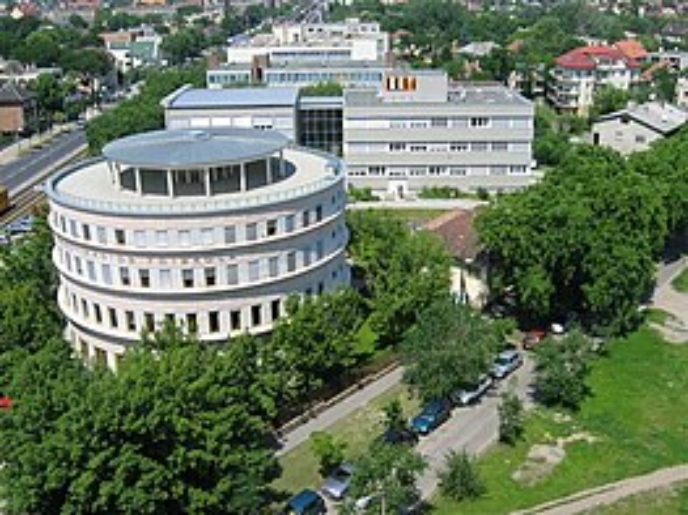HEALTH
Understanding Addiction Treatment: Pathways to Recovery

Addiction is a complex and challenging condition that affects millions of people worldwide. Whether it’s addiction to drugs, alcohol, or other harmful behaviors, overcoming addiction requires comprehensive treatment and support. This article will explore the different aspects of addiction treatment, including the types of therapies available, the role of support systems, and the importance of a personalized approach to recovery.
1. What is Addiction?
Addiction is a chronic disorder characterized by compulsive drug seeking, continued use despite harmful consequences, and long-lasting changes in the brain. While it often begins with voluntary substance use, over time, a person’s ability to choose not to take the substance becomes compromised. This behavior can lead to significant personal, professional, and health-related problems.
2. The Importance of Professional Treatment
Overcoming addiction on one’s own is incredibly challenging due to the physical, psychological, and emotional aspects of the disease. Professional treatment provides the necessary tools and support to address these complexities. Treatment typically involves a combination of therapies that are tailored to the individual’s specific needs.
Types of Addiction Treatment
1. Detoxification
Detoxification, or detox, is usually the first step in addiction treatment. It involves the process of allowing the body to remove the drugs or alcohol from its system. Detox can be uncomfortable and potentially dangerous due to withdrawal symptoms, so it is often done under medical supervision.
Key Points:
- Medical Supervision: Ensures safety during withdrawal.
- Medication: May be used to ease withdrawal symptoms.
2. Inpatient Rehabilitation
Inpatient or residential rehab involves staying at a treatment facility where individuals receive around-the-clock care. This environment helps remove the individual from external triggers and allows them to focus solely on recovery.
Key Points:
- Structured Environment: Helps maintain focus on recovery.
- Comprehensive Care: Includes therapy, medical care, and support groups.
3. Outpatient Rehabilitation
Outpatient rehab is less intensive than inpatient treatment and allows individuals to continue their daily lives while receiving treatment. It is ideal for those with a strong support system at home and who may not require round-the-clock care.
Key Points:
- Flexibility: Allows continuation of work or school.
- Regular Therapy: Regular sessions to address addiction.
4. Behavioral Therapies
Behavioral therapies are a core component of addiction treatment. These therapies help individuals change their attitudes and behaviors related to substance use, and develop life skills to cope with stressful situations and triggers.
Types of Behavioral Therapies:
- Cognitive Behavioral Therapy (CBT): Focuses on identifying and changing negative thought patterns and behaviors.
- Motivational Interviewing: Helps individuals find the motivation to change.
- Contingency Management: Uses positive reinforcement to encourage sobriety.
5. Medication-Assisted Treatment (MAT)
MAT combines behavioral therapy with medications to treat substance use disorders. It is often used for opioid or alcohol addiction and helps reduce cravings and withdrawal symptoms.
Key Points:
- Medications: Such as methadone, buprenorphine, and naltrexone.
- Holistic Approach: Combines medication with counseling.
6. Support Groups
Support groups like Alcoholics Anonymous (AA) or Narcotics Anonymous (NA) offer peer support, which is crucial for long-term recovery. These groups provide a sense of community and accountability.
Key Points:
- Peer Support: Helps reduce feelings of isolation.
- Ongoing Meetings: Regular participation reinforces commitment to recovery.
The Role of Family and Community
Family and community play a significant role in the recovery process. Family therapy can help repair relationships damaged by addiction, while community support can provide additional resources and encouragement.
Key Points:
- Family Therapy: Helps family members understand addiction and learn how to support their loved one.
- Community Resources: Offer additional support such as housing, employment, and ongoing counseling.
Challenges in Addiction Treatment
While there are many effective treatment options, recovery from addiction is not without its challenges. Relapse is a common part of the process, and it’s important for individuals to understand that setbacks are not failures but opportunities to learn and grow.
Key Points:
- Relapse: Recognized as a step in the recovery process, not a failure.
- Ongoing Support: Essential for long-term success.
Conclusion
Addiction treatment is a multifaceted process that requires a comprehensive and personalized approach. From detox and behavioral therapies to medication-assisted treatment and support groups, the journey to recovery involves various steps that work together to help individuals overcome addiction. With the right treatment and support, long-term recovery is not only possible but achievable.
If you or someone you know is struggling with addiction, it’s important to seek help as soon as possible. Professional treatment can provide the necessary tools and support to begin the path to recovery and reclaim a healthier, more fulfilling life.
Frequently Asked Questions (FAQs) about Addiction Treatment
1. What is addiction treatment?
Addiction treatment is a process that helps individuals overcome their dependence on substances such as drugs or alcohol. It involves various therapeutic methods, including detoxification, counseling, behavioral therapy, and sometimes medication, all aimed at achieving and maintaining sobriety.
2. How do I know if I need addiction treatment?
If you or someone you know struggles to control substance use, continues to use despite negative consequences, or experiences withdrawal symptoms when not using, addiction treatment may be necessary. It’s important to consult with a healthcare professional for an assessment.
3. What is detoxification?
Detoxification, or detox, is the first step in addiction treatment where the body is cleared of the addictive substance. It is often done under medical supervision to manage withdrawal symptoms safely.
4. What is the difference between inpatient and outpatient treatment?
Inpatient treatment involves staying at a facility for the duration of the treatment, providing a structured environment with 24/7 care. Outpatient treatment allows individuals to live at home and continue with their daily activities while attending scheduled treatment sessions.
5. How long does addiction treatment take?
The length of addiction treatment varies depending on the individual’s needs, the substance used, and the severity of the addiction. Treatment can last from a few weeks to several months, and ongoing support may continue for years to help maintain sobriety.
HEALTH
Vital-Mag.net blog: Source for Health and Wellness Information
HEALTH
The Complete Guide to OCMSo Georgia: Enhancing Healthcare Across the State

OCMSo Georgia is a pivotal initiative shaping the healthcare landscape in the state. Whether you’re a healthcare provider, patient, or policy enthusiast, understanding whatrepresents and how it operates can offer valuable insights into its potential benefits and challenges.
Understanding OCMSo Georgia
refers to the state’s specific adoption and implementation of the Oncology Care Model (OCM) in a Southern context, with unique modifications that reflect the needs and characteristics of Georgia’s healthcare environment. OCM is a value-based payment and care delivery model aimed at improving care coordination, appropriateness of care, and access to care for beneficiaries undergoing chemotherapy. The Georgia version, OCMSo, emphasizes local healthcare needs, focusing on optimizing care for cancer patients while ensuring cost-effectiveness.
The Importance of OCMSo Georgia in Healthcare
The implementation ofis crucial in advancing the quality of healthcare across the state. This model incentivizes healthcare providers to deliver high-quality, patient-centered care while reducing unnecessary costs. By focusing on oncology care, a significant area of medical expenditure, strives to enhance patient outcomes and improve the overall healthcare experience for patients battling cancer.
Key Features of OCMSo Georgia
incorporates several essential features that make it distinct from other healthcare models. These include:
- Patient-Centered Care: prioritizes the needs and preferences of patients, ensuring that they receive tailored care plans that address their specific conditions and treatment goals.
- Cost Management: The model encourages cost-effective care by promoting the use of evidence-based treatment protocols and reducing unnecessary interventions.
- Data-Driven Decision Making: Providers under are required to use data and analytics to inform treatment decisions, ensuring that patients receive the most effective and appropriate care.
- Collaboration Among Providers: fosters a collaborative environment where different healthcare providers work together to coordinate care, thereby reducing the risk of fragmented or duplicative services.
How OCMSo Georgia Benefits Patients
One of the most significant advantages of is its potential to improve patient outcomes. By focusing on high-quality, coordinated care, patients can experience fewer complications and better overall health results. The model’s emphasis on data-driven decisions ensures that treatments are more likely to be effective, reducing the chances of unnecessary side effects and improving the quality of life for patients.
Moreover, the cost-saving measures within can also benefit patients financially. By reducing unnecessary tests and treatments, the model helps to lower out-of-pocket expenses for patients, making healthcare more accessible and affordable.
Challenges and Opportunities in OCMSo Georgia
While presents numerous benefits, it also faces several challenges. The transition to a value-based care model can be complex, requiring significant changes in how healthcare providers operate. Additionally, the success of depends on the accurate collection and analysis of healthcare data, which can be a daunting task for many providers.
However, these challenges also present opportunities for innovation and improvement. By embracing new technologies and processes, healthcare providers can overcome these hurdles and fully realize the benefits of The state’s commitment to this model signals a forward-thinking approach to healthcare that could serve as a model for other states.
The Role of Technology in OCMSo Georgia
Technology plays a crucial role in the success of From electronic health records (EHRs) to advanced analytics, the integration of technology in healthcare allows providers to track patient outcomes, monitor costs, and adjust care plans as needed. Telemedicine, in particular, has become an essential tool under enabling providers to reach patients in rural or underserved areas and ensuring they receive timely and appropriate care.
Future Prospects of OCMSo Georgia
The future of OCMSo Georgia looks promising, with the potential for further expansion and refinement. As the model evolves, it is expected to incorporate more advanced technologies, such as artificial intelligence and machine learning, to enhance predictive analytics and personalized care. Additionally, as more data becomes available, can refine its approach, leading to even better patient outcomes and cost savings.
OCMSo Georgia: A Catalyst for Healthcare Reform
In conclusion, represents a significant step forward in healthcare reform within the state. By focusing on value-based care, the model not only improves patient outcomes but also makes healthcare more sustainable and cost-effective. As continues to evolve, it holds the potential to serve as a blueprint for other states looking to enhance their healthcare systems.
FAQs
What is OCMSo Georgia?
is a state-specific adaptation of the Oncology Care Model, focused on improving cancer care while managing costs.
How does OCMSo Georgia benefit patients?
Patients benefit from more coordinated, cost-effective care that is tailored to their specific needs, leading to better health outcomes.
What challenges does OCMSo Georgia face?
Challenges include the transition to a value-based care model, the need for accurate data collection, and the integration of new technologies.
How does technology support OCMSo Georgia?
Technology supports through electronic health records, advanced analytics, and telemedicine, all of which enhance care coordination and decision-making.
What are the future prospects of OCMSo Georgia?
The future looks bright with potential expansions in technology use, more refined data analytics, and improved patient care strategies.
Why is important for healthcare reform?
is important because it represents a shift toward value-based care, which can improve patient outcomes and reduce healthcare costs.
HEALTH
Is Miracoup the Miracle Supplement You’ve Been Waiting For? A Comprehensive Review
-

 BEAUTY9 months ago
BEAUTY9 months agoLaGlobalBae: Revolutionizing Fashion and Inclusivity Globally
-

 FASHION11 months ago
FASHION11 months agoThe Rise of Rick Owens in Modern Fashion
-

 SOCIAL3 months ago
SOCIAL3 months agoSwatapp.me المانجا: The Ultimate Manga Reading Platform
-

 INFORMACTION7 months ago
INFORMACTION7 months agoHeller Farkas College of Economics and Tourism: A Legacy
-

 Blog10 months ago
Blog10 months agoTechdae.frl’s Gadget Reviews and In-Depth Insights
-

 Blog10 months ago
Blog10 months agoAdeena Mendel: A Leader in Innovation and Real Estate
-

 BUSINESS10 months ago
BUSINESS10 months agoHow to Find the Best Deals on Realme Second Hand Phones: A Comprehensive Guide
-

 SPORTS7 months ago
SPORTS7 months agoIndia National Cricket Team vs England Cricket Team: A Riveting Timeline


